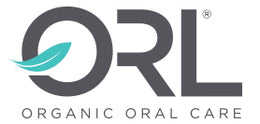15 Vitamins & Minerals Essential for Optimum Oral Health
Are you getting all the nutrients your body needs? Recent research shows that 90% of Americans are missing out on key nutrients, including vitamins and minerals, that their bodies require for optimum health. This carries over to your oral health as well, meaning if you’re not getting adequate amounts of specific vitamins and minerals—often on a daily basis—you could be setting the stage for gum disease, cavities, and other oral health issues too.
We’ll go over 15 of the most essential vitamins and minerals for oral health below, explain how they work, and provide insights on how to increase your intake if you’re one of the millions of people falling short.
1. Vitamin A (Retinyl Palmitate)
Vitamin A is considered an essential micronutrient; our bodies don’t manufacture it, but various bodily processes cannot be carried out without it. It’s typically associated with healthy skin and eyes as well as reproductive and immune health, and is found in all sorts of foods, from eggs to carrots.
It can be broken up into two categories; retinoids, which the body can readily use, and carotenoids, which the body must convert into retinoids before they can be used. This in mind, retinyl palmitate is a variety of vitamin A that’s “bioavailable,” meaning your body can use it without needing to take any special steps to convert it.
Oral Health Benefits of Vitamin A
People who are deficient in vitamin A tend to have oral symptoms of it, researchers say. This includes things like xerostomia (dry mouth), gingivitis (early-stage gum disease), periodontitis (advanced gum disease), tooth defects, and higher decay risk. At the same time, adequate vitamin A is associated with a multitude of oral health benefits.
- Creating healthy oral tissues and mucous membranes
- Promoting healing in the mouth
- Improving immune system functioning
- Remineralizing teeth
- Forming healthy teeth and bones
2. Vitamin B1 (Thiamin HCI)
Like vitamin A, vitamin B1 is an essential micronutrient. Our bodies need it in small amounts, but cannot manufacture it. It’s essential for cellular metabolism, which means the growth, development, and functioning of cells rely upon it. For this reason, it’s associated with the health of the heart, brain, muscles, nerves, and digestive system.
Whole grains can be a good source of B1, though most grains today are processed, so a lot of products are fortified with thiamin after processing to add the nutrition back in. Meat and fish have thiamin too, but the cooking process tends to destroy it.
Vitamin B1 is part of the B Complex family or grouping of B vitamins. Each one has a different molecular structure, so they are used by the body in unique ways and often appear side-by-side within the same foods. It goes by the names vitamin B1 and thiamine or thiamine, with thiamin hydrochloride being the hydrochloride salt version of the compound often used in supplements.
Oral Health Benefits of Vitamin B1
People who are deficient in B1 are at greater risk of diabetes, heart disease, and Alzheimer’s, according to the latest research, and all these things are linked to periodontal disease. Scientists believe the link here is inflammation, so in addressing risk factors and/or treating one area, people are less likely to have issues with other inflammatory conditions. Additional studies show that maintaining adequate B1 is essential when it comes to keeping skin around the mouth healthy too.
- Reducing inflammation
- Reducing periodontal disease risk
- Preventing cracked lips
- Avoiding angular cheilosis (cracks at the corners of the mouth)
3. Vitamin B2 (Riboflavin-5-Phosphate)
Vitamin B2, also called riboflavin, works similarly to its cousin B1 in that it aids in cellular metabolism, helping cells create energy. Many of the nutrients the body relies on are not ingested in a form the body can use, just as discussed earlier in relation to various forms of vitamin A. Riboflavin helps convert unusable nutrients into those the body can use. It also enables the body to utilize oxygen. This in mind, B2 is necessary in the prevention of anemia, promotes healthy skin, supports proper organ functioning, and is essential for eye health.
Although B2 is found in a variety of sources, from dairy products through nuts and broccoli, the body flushes out unused B2 rapidly, meaning it must be replenished every day. Riboflavin-5-phosphate is the activated version often used in supplementation.
Oral Health Benefits of Vitamin B2
People who are deficient in B2 may suffer from things like mouth sores as well as oral inflammation and swelling. On the extreme side, ulcerative gingivitis, an acute gum infection presenting with painful sores, can also set in. This in mind, B2 is beneficial in:
- Preventing oral inflammation
- Reducing gum disease risk
- Avoiding mouth sores
4. Vitamin B3 (Niacinamide)
Vitamin B3, also referred to as niacin, is another member of the B Complex group and, as such, its presence impacts the whole body too. It comes in various forms. For example, nicotinic acid is typically used to help reduce cholesterol and lower risk of heart disease. Niacinamide or nicotinamide tends to be associated more with reducing inflammation and skin health. This in mind, it’s also leveraged in treatment for heart disease, diabetes, arthritis, and psoriasis. Plus, multiple studies have linked it to brain health, indicating it can diminish brain fog, improve mood, reduce Alzheimer’s risk, and may help with the treatment of psychiatric conditions like schizophrenia.
Niacin is found naturally in meat, poultry, fish, nuts, and legumes. However, like its cousins, it needs to be replenished daily—the body does not store it.
Oral Health Benefits of Vitamin B3
Current research indicates vitamin B3 impacts oral health in the same ways B2 does, though the body requires both.
- Preventing oral inflammation
- Reducing gum disease risk
- Avoiding mouth sores
5. Vitamin B6 (Pyridoxine HCI)
As another of the B Complex, vitamin B6, also known as pyridoxine, plays a fundamental role in the health of the brain and nervous system. It’s also involved in producing hemoglobin, so without it, blood cannot carry oxygen throughout the body. Plus, it’s related to the production of serotonin, norepinephrine, and melatonin, meaning it impacts everything from your sleep habits through how you feel and function. Moreover, it’s associated with diminished risk for things like strokes, Alzheimer’s disease, and depression. Researchers believe it can slow cognitive decline and memory loss associated with aging too.
While you can get B6 from chickpeas, beef, fish, poultry, whole grains, and other sources, it needs to be replenished daily too.
Oral Health Benefits of Vitamin B6
Research ties B6 to a wealth of oral health benefits, including:
- Improving immune function
- Preventing oral inflammation and swelling
- Reducing periodontal disease
- Eliminating soreness and burning in the mouth
- Treating anemia, thus improving tissue health and healing
6. Vitamin C (Ascorbic Acid)
Most people are familiar with vitamin C, also known as ascorbic acid, as it relates to the immune system and tissue repair. It also enables the body to absorb iron better and helps wounds heal, plus works to keep bones and cartilage strong. Over the years, it has been linked to cardiovascular health, cancer reduction, eye health, and diminished stroke risk, among other things, too.
Naturally, vitamin C is found in citrus fruits, but it’s also found in everything from broccoli through bell peppers. However, it’s one of the many nutrients the body doesn’t store, so it needs to be replenished daily.
Oral Health Benefits of Vitamin C
When people are low on vitamin C, they may fall victim to conditions like scurvy or suffer from bleeding gums. Additionally, it’s known to aid with:
- Promoting tissue health
- Improving immune function
- Diminishing gingival bleeding
- Improving wound healing
- Slowing the progression of periodontal disease
- Increasing tooth and bone strength and normal growth
7. Vitamin D (Cholecalciferol)
Vitamin D gets a lot of press as it relates to promoting healthy bones. It does so by helping the body absorb calcium. It also helps nerves carry messages to and from the brain, is essential for immune function, and muscles require it to move.
One form of vitamin D is D3, also known as cholecalciferol. This is the form of vitamin D your own body makes when your skin is exposed to sunlight, though it’s also found in fish and egg yolks.
Oral Health Benefits of Vitamin D
Naturally, vitamin D’s biggest claim to fame when it comes to oral health is its ability to help the bones absorb calcium, which results in stronger teeth and a healthier jawbone.
- Strengthening teeth and bones
- Improving reminerialzation
- Aiding the immune system
8. Vitamin E (d-Alpha Tocopherol)
Vitamin E has been used to help improve skin health for generations, but more recently, researchers have labeled it as an antioxidant. This means it protects cells from the damage free radicals cause. Since free radicals are associated with everything from the signs of aging to cancer, antioxidants are beneficial for your overall health. Vitamin E specifically helps the body in a number of ways, such as maintaining eye health and improving the health of the immune and vascular systems too.
There are multiple forms of Vitamin E. For example, the laboratory-created version is referred to as dl-alpha-tocopherol, while food-based/ natural sources typically contain the more potent form, called d-alpha-tocopherol. Vegetable oils, nuts, whole grains, and leafy vegetables tend to be good sources.
Oral Health Benefits of Vitamin E
Because vitamin E improves immune health, it helps prevent periodontal disease too. Plus, studies have shown vitamin E may help diabetics control their blood glucose levels better. When diabetes and other inflammatory conditions are in check, oral health tends to improve too.
- Reducing periodontal disease risk
- Improving immune health
- Diminishing inflammation
9. Calcium (Calcium Carbonate)
Most people are familiar with calcium—it’s one of the primary building blocks of healthy bones. Muscles and nerves need it to function well too, and current research indicates it may protect against cancer, high blood pressure, and diabetes as well.
One of the most common forms of calcium in supplement form is calcium carbonate, which is often used to fortify foods. It’s also found in dairy, leafy green vegetables, and certain types of fish. However, research shows that even though about half of all Americans are taking supplements, most are still not getting enough calcium in their diets.
Oral Health Benefits of Calcium Carbonate
Calcium is essential as bones and teeth are developing. Without adequate amounts of it, a number of disorders can occur. However, even after teeth are fully formed, they’re constantly losing calcium and other minerals, which sets the stage for decay. However, under the right conditions, research shows teeth will naturally remineralize, provided they have access to calcium and other essential minerals.
- Improving remineralization
- Creating stronger, healthier teeth
- Decreasing decay risk
- Strengthening the jawbone
10. Vitamin K2
Vitamin K helps the body synthesize proteins necessary for calcium to bind to bones and other tissues. In other words, your body cannot use calcium you take in unless you’ve got vitamin K as well. Without it, your bones and teeth become weak. Plus, it serves a vital role in the coagulation of blood and other functions.
Many animal products contain vitamin K, including soy, cheese, butter, egg yolks, and dark chicken meat.
Oral Health Benefits of Vitamin K2
Naturally, your jaw and teeth need the strength afforded by calcium. In this sense, it enables remineralization, which prevents decay, and can ensure your jaw lasts as long as you do. Additional research suggests it has the ability to decrease the bacterial count in saliva, which also decreases decay risk.
- Encouraging remineralization
- Increasing bone and tooth strength
- Decreasing bacteria
- Reducing cavity risk
11. Phosphorus (Riboflavin-5-Phosphate)
Phosphorus is a bit of an unsung hero. Even though it makes up about 1% of a person’s total body weight, most of which is in the bones and teeth, it doesn’t get as much press as calcium. On top of this, the body needs it to make protein, so it plays an integral role in the growth, maintenance, and repair of the whole body at a cellular level.
Phosphorus is abundant and is found in many of the same sources as calcium, but again, most people aren’t getting enough calcium. Riboflavin-5-Phosphate is the activated version of riboflavin (vitamin B2 as covered earlier), and it contains phosphorus.
Oral Health Benefits of Phosphorus
Phosphorus is one of the most abundant minerals found in teeth. Its benefits are aligned with calcium’s.
- Improving remineralization
- Creating stronger, healthier teeth
- Decreasing decay risk
- Strengthening the jawbone
12. Copper (Copper Sulfate)
The body only requires a small amount of copper, but it’s literally found in all tissues. It’s often associated with the production of red blood cells, the absorption of iron, nerve cell maintenance, immune function, and the formation of collagen. At this stage, researchers also know that those with copper deficiency also have lower bone mineral density too. This, paired with the inability to produce collagen, means that those who are short on copper often have issues with their bones, joints, and connective tissues, including arthritis, osteoporosis, and fractures. Additionally, those with copper deficiency are also more prone to infections.
Whole grains are a good source of copper, but most people consume processed grains instead.
Oral Health Benefits of Copper
As noted earlier, copper is associated with mineral density in bones. This is true of teeth as well. Moreover, researchers have found that teeth with adequate copper are more resistant to acid erosion and demineralization, so they aren’t as susceptible to cavities. Copper inhibits bacterial growth too.
- Improving mineral density
- Protecting teeth from acid erosion
- Guarding against demineralization
- Inhibiting bacterial growth
13. Zinc (Zinc Gluconate)
Zinc is often considered the counterpart to copper. The body uses it for everything, including cell division, DNA and protein synthesis, immune health, wound healing, and growth. However, whereas vitamins like calcium and vitamin K work together, zinc and copper compete for placement, and imbalances of the two are associated with everything from inflammation to oxidative stress, disability, heart failure and diabetes.
Foods like oysters, beef, and certain seeds and nuts contain zinc, but many nutritionists recommend that those who take in extra copper also take in additional zinc and vice versa to maintain balance.
Oral Health Benefits of Zinc
The same researchers who examined copper also looked into zinc and the relationship between the two. Overall, zinc is linked to:
- Improving mineral density
- Protecting teeth from acid erosion
- Guarding against demineralization
- Healing sores and abrasions
14. Iron II (Ferrous Lactate)
Iron is typically associated with hemoglobin, which is what allows red blood cells to carry oxygen throughout the body. Insufficient iron, therefore, results in anemia, which causes fatigue, impacts immune function, and creates brain fog. It’s also a major component of skin, nails, and hair.
Although iron is found in meat, researchers say about 20% of women and 50% of pregnant women are deficient in it. Roughly 3% of men are too. There are multiple forms of iron often used with supplementation. Ferrous lactate happens to be one of the varieties with the greatest bioavailability, meaning the body can use it with greater ease.
Oral Health Benefits of Iron
Low levels of iron are associated with mouth sores and inflammation. Those with anemia are also more prone to developing infections, including periodontal disease.
- Improving tissue health
- Reducing inflammation
- Helping immune health/ reducing infection risk
- Decreasing periodontal disease risk
15. Manganese (Manganese Gluconate)
Manganese is generally considered a cofactor, meaning it many enzymes cannot have reactions without it. It’s because of this that it’s associated with everything from bone formation through immune response and blood clotting. Research suggests manganese deficiency is linked with bone demineralization, diabetes, and other issues.
Although it’s found in everything from mussels through various types of nuts, people only absorb about 1-5% of dietary manganese.
Oral Health Benefits of Manganese
As noted earlier, diabetes is linked with higher prevalence of periodontal disease, which means manganese may be beneficial in:
- Fighting periodontal disease
- Improving tooth and bone health
- Preventing demineralization
- Helping teeth resist decay
Get All 15 Vitamins and Minerals the Easy Way: By Brushing with ORL Toothpaste
ORL toothpastes and mouthwashes are designed with one core concept in mind: creating a perfect 7.0 pH balance and providing all the nutrients your mouth needs, so your gums and teeth stay healthy—without the need for fluoride. Whether you’re worried you’re not supplying your smile with the nutrients it needs or you simply prefer to use naturally good-for-you products, ORL toothpastes and mouthwashes will nourish your smile and freshen your breath the way Mother Nature intended.



